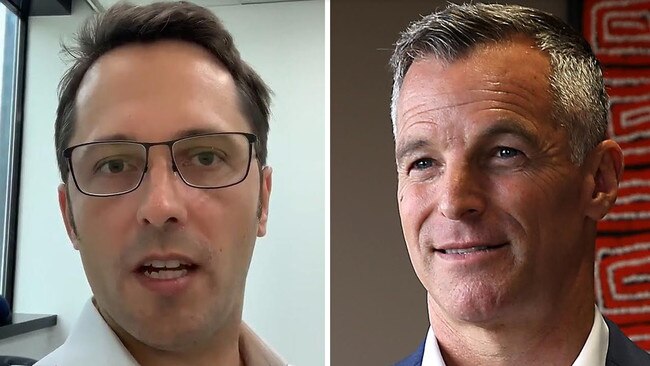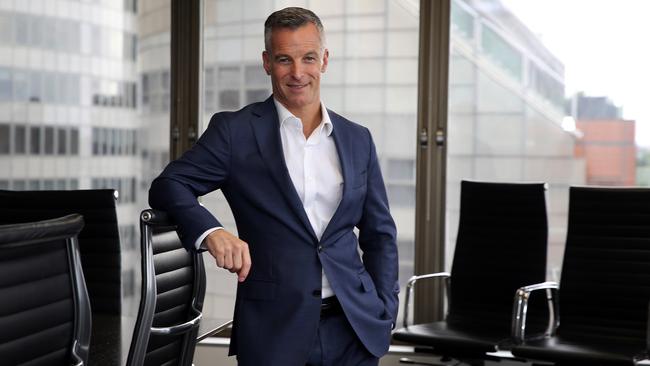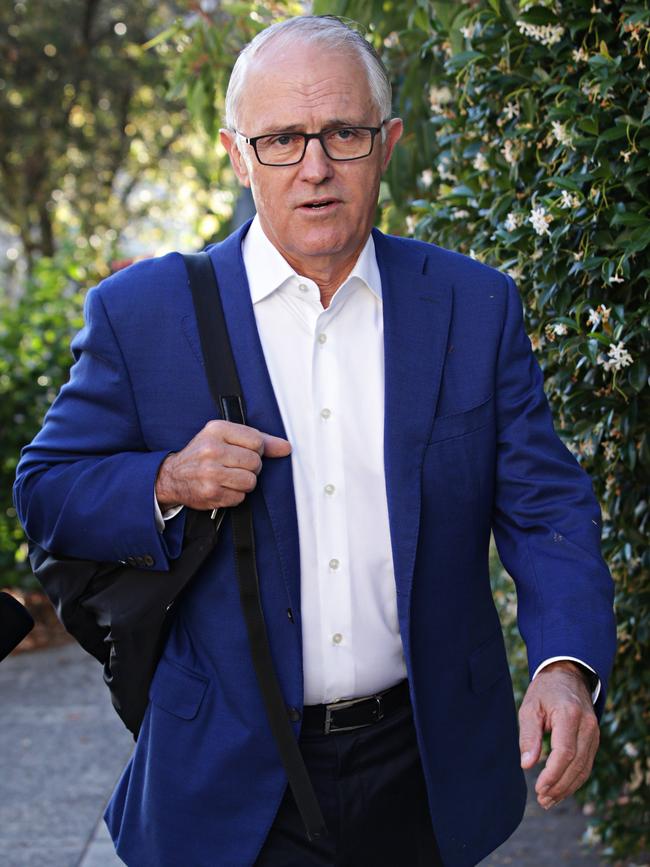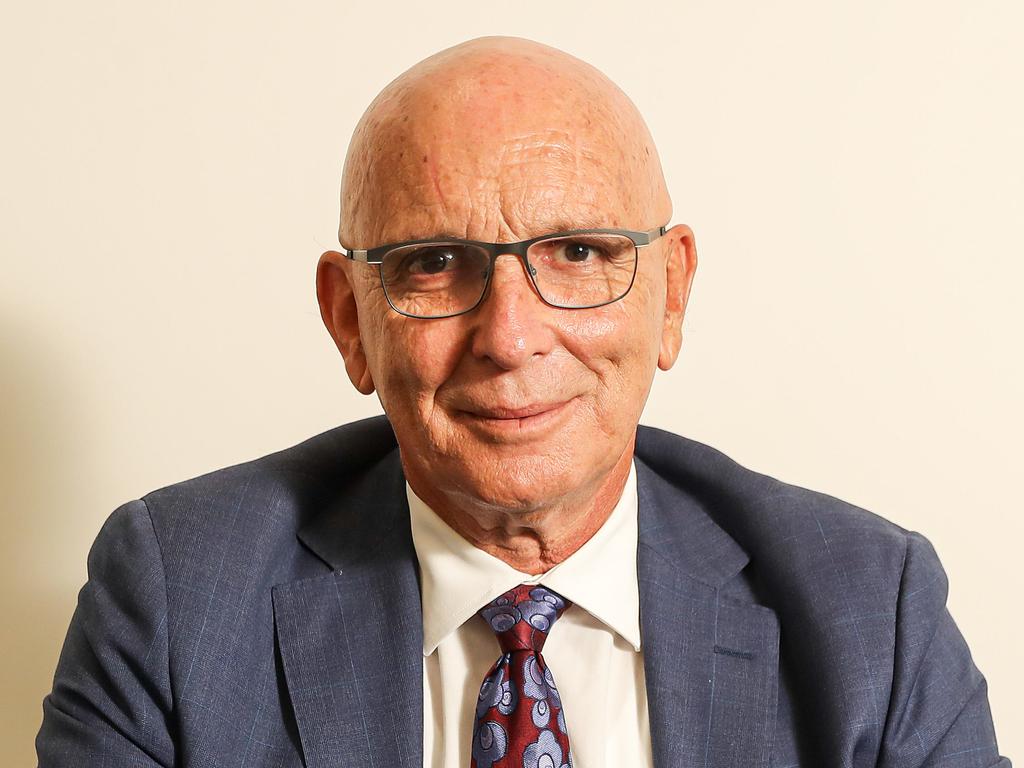Talk of deceit and outright lies as Turnbull feud hits court
The relationship between two wealthy families has soured after a failed share deal and litigation in which the Turnbulls are suing for millions in lost profit.

Just a few years ago, the Turnbull and Pillemer families remained longstanding friends and professional allies, both bound up in the dizzying world of corporate finance with a shared stake in a boutique funds management firm, Pengana Capital.
These days, the only conversations the two families have are through their respective legal teams, the relationship having soured through a failed share deal and litigation in which the Turnbulls are suing Pengana’s chief executive, Russel Pillemer, for millions of dollars in lost profit.
Allegations of deceit and outright lies are hallmarks of this case, but at its centre is a claim that Mr Pillemer engaged in “misleading and deceptive conduct” by depriving the Turnbulls of critical information. That information — that Pengana Capital was months out from merging with another investment house, Hunter Hall — could have increased the value of the Turnbull family’s stake in Pengana by millions.

In the NSW Supreme Court on Monday, Alex Turnbull said that, had this knowledge been shared between old friends, it is unlikely he would have accepted Mr Pillemer’s offer to purchase the Turnbull family’s shares for $6.1m.
Instead, he would have sold later at a higher value.
Alex Turnbull’s company, Maurtray Pty Ltd, is suing Mr Pillemer for damages of up to $12m. Giving evidence from Singapore, Alex Turnbull denied several explosive allegations put to him during cross-examination, including that he changed his evidence on the instruction of his father, Malcolm Turnbull, and that he deliberately tried to conceal his father’s stake in Pengana while he was prime minister of Australia.
Listening in to the proceedings, held on Microsoft Teams, was Lucy Turnbull, according to a list of participants, and Clive Mathieson of crisis communication firm Cato&Clive, a former prime ministerial staffer for Malcolm Turnbull now engaged by Alex Turnbull.
During his time in parliament, Malcolm Turnbull made disclosures stating he held no shares in public companies. There is no suggestion this is untrue, however his son’s litigation against Mr Pillemer has cast light on a tranche of shares loaned to the Pengana chief executive in 2008, for which no money changed hands. Whether this amounted to a form of equity in the company is something Alex Turnbull denies; the eventual sale of these shares in 2017 is also what ended the friendship and lit the fuse on a court case.

In his defence, Mr Pillemer has alleged that Alex Turnbull rejected offers to hold on to the shares because he feared that, through the eventual sale, his family’s involvement in Pengana, and any associated conflict, would become known to the media and cause embarrassment to his father.
Touching on the sharp-elbowed world of corporate finance and the delicate egos of its titans, Alex Turnbull’s evidence eventually moved towards the allegation that he had been hoodwinked by Mr Pillemer, a trusted associate who once cited Malcolm Turnbull as one of the “key influences” of his life, alongside his own father.
“That must have been an appalling thing to understand, that this longstanding friend had directly lied to your face,” said Robert Newlinds SC, acting for Mr Pillemer. “It was hard to believe and comprehend,” Alex Turnbull replied, adding that he lacked the hard proof at first that he had been allegedly deceived. It was for this reason that he never confronted Mr Pillemer. “He has a very fragile ego, Mr Newlinds. He would not take it well.”
Family dynamics were another focus of the cross-examination, as Alex Turnbull spoke of the opportunity costs associated with being the son of an Australian prime minister.
He said it effectively cost him a job at Goldman Sachs where he had worked on the mergers and acquisitions desk until restrictions to manage potential conflicts became too onerous.
This became a perennial problem wherever he attempted to work in corporate finance.
His father later loaned him and his sister, Daisy, $10m in seed funding so they could start their own hedge fund.
But even then he could scarcely cut a deal without drawing unwanted media attention. “By virtue of being his son, that problem existed. What choice did I have in the matter? It was largely a fixed cost of annoyance, that’s simply what it was, regardless of what I did,” Mr Turnbull said.
The association between the Turnbull and Pillemer families stretches back several decades, beginning when the two men worked at Goldman Sachs during the 1990s.
In 2003, they founded Pengana Capital, with Malcolm Turnbull selling most of his shares in the company to the National Australia Bank in 2008, around the time he was elected leader of the Liberal Party.

He was unable to sell-off his entire share, thus a deal was worked out between the two friends in which Malcolm Turnbull loaned his remaining stake to Mr Pillemer, valued at $6m.
Under the arrangement the shares would be either returned or paid out in cash.
In November 2015, two months after Malcolm Turnbull became prime minister, his company Turnbull & Partners transferred the loan and guarantee to Maurtray Pty Ltd, an entity owned and operated by Alex and Daisy Turnbull.
Mr Newlinds queried whether the loan could be described as “synthetic equity”, given that it came with an entitlement of dividend payments. Alex Turnbull rejected the assertion. “It was still a loan,” said Mr Newlinds, “but even though he wasn’t a shareholder, he received dividends that were paid in relation to these particular shares.”
“This is how securitisation works, Mr Newlinds. That’s a loan,” Mr Turnbull said.
“I know that. But the jargon would be it’s synthetic equity. Absolutely not.”
Further portions of Monday’s cross-examination were spent unpacking the details of this transfer between father and son, and why, in one affidavit, Alex Turnbull said this transfer was a loan, but in another it was called “a gift” from his father.
Alex Turnbull put the discrepancy down to an administrative error while Mr Newlinds suggested he had changed his evidence on the instruction of his father. This was denied by Mr Turnbull. “I didn’t have written records. That’s normally how I recall these things,” he said.
During questioning, Mr Newlinds alleged that by classing the transfer of the loan as a gift, it could allow Mr Turnbull to skirt any obligation to disclose it on the members’ register, because no money is owed in return.
“It doesn’t change his disclosure obligations in any way,” Alex Turnbull replied.
“Of course it does,” Mr Newlinds said. “You don’t have to disclose a gift once you’ve given it. What you have to do is disclose investments which might cause conflicts of interest.”
The hearing will continue on Tuesday.






